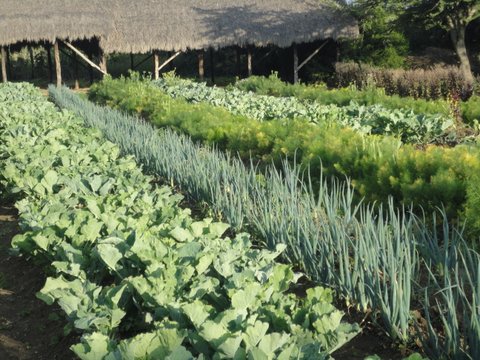
Intercropping is a farming technique in which multiple crops are grown together in the same field. This method has been used for centuries and has numerous benefits for the soil, crops, and the environment.
Here are some of the benefits of intercropping:
- Increased Yield: Intercropping can increase yield by making the most efficient use of available space, light, and resources. By growing multiple crops together, farmers can make use of different root systems, growth patterns, and nutrient requirements to optimize their use of the land.
- Soil Fertility: Intercropping can help to improve soil fertility by adding organic matter to the soil and fixing nitrogen. Leguminous crops, such as beans or clover, can help to fix nitrogen in the soil, which can be used by subsequent crops.
- Weed Suppression: Intercropping can help to suppress weeds by competing with them for light, water, and nutrients. This can make it easier to control weeds and reduce the need for herbicides.
- Pest Control: Intercropping can also help to control pests by attracting beneficial insects, such as ladybugs and lacewings, which feed on harmful insects. Additionally, different crops can have different susceptibility to pests, so intercropping can help to reduce the spread of pests.
- Biodiversity: Intercropping can help to increase biodiversity in the agricultural landscape, which is important for the health of the ecosystem. By growing multiple crops together, farmers can promote a healthy and diverse ecosystem.
In order to get the most benefits from intercropping, it is important to choose the right crops for your area and to plant them at the right time. It is also important to consider the specific needs of each crop and to carefully manage the intercrop mixture.
By incorporating intercropping into your agricultural practices, you can help to increase yield, improve soil fertility, suppress weeds, and control pests. Whether you are a small-scale farmer or a large-scale producer, intercropping can be a valuable tool for improving the health of your soil and the environment.







